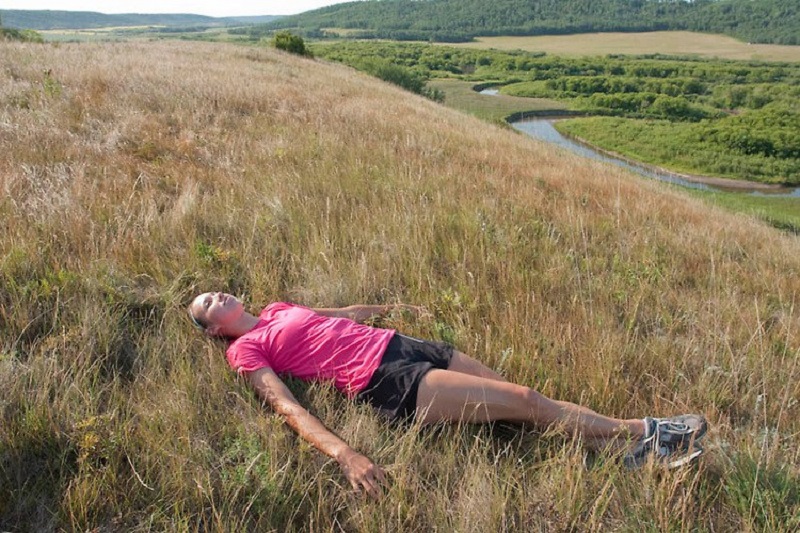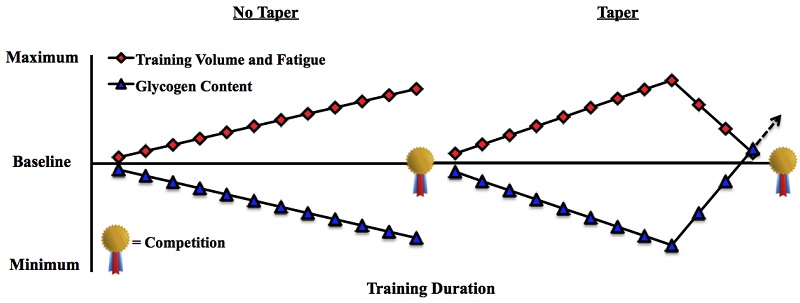
We can talk a lot about getting fit, starting running or even eating healthy, but there is one aspect of training that people surprising forget about – and that is resting.
What? Do you guys even need a guide to this topic – you should all be experts at getting home and doing nothing by now. However, the truth is, if you’re an active person, resting becomes something you need to think about a little bit more deliberately than most… And now I’ve probably lost everyone who was trying to get fit because if you can’t be lazy about being lazy, what point is there to any of it?
Don’t worry, it doesn’t need to be that complicated. Rather, all I want to focus on is the importance of resting a physically active body and making sure that it is something you get enough of. When it comes to cardiovascular training like running or swimming, the saying goes it’s better to be undertrained, than over-trained and if you’re someone who is interested in performing at big events, this is certainly true.
One of the biggest mistakes people make when they start to increase their fitness is getting hooked on the thrill of working out and bettering yourself that they forget to rest the body often enough and end up either burning out or injuring themselves in the process. Giving your body time to rest is one of the best things you can do to make your training more effective and ensure that in the long term, you can keep training.
If you ever need a modern-day example of how resting correctly actually makes you better look at modern-day tennis legend Roger Federer who despite being one of the oldest players in the field, continues to win major tournaments. One of the reasons he is so good is because he actually plays less tennis than the rest and not more. He has learnt to rest his body correctly so that it is more effective when it needs to be and has allowed him to lengthen his career too.

Firstly, what is rest?
So, what exactly is resting? Well, it’s not cross-training where you’re riding a bike instead of running or vice versa. And it also doesn’t mean sitting on a couch doing buggerall all day though there is certainly nothing wrong with that either. The best rest is essentially doing anything that is not taxing on the body and can take your mind off of training. Think of walking the dog, going to the beach or just living your regular life sans a workout. If there is one thing I would advise though to still do despite being in your resting routine, it’s stretching. It only helps your muscles get more nimble without adding any stress to your body, so it’s not something you should refrain from at all.
This also depends on the intensity of your training. If you’ve been training very actively for a week, more than normal – rest should resemble as little activity as possible whereas if you’ve been training moderately, going for a gentle walk is probably going to help a lot. Just keep your heart rate lower than normal and you will be fine. You can even deviate a little from your diet and eat some sweet stuff or junk food provided you don’t overdo it.

Knowing when to rest
The difficulty though is knowing when to rest and how much to rest. Rest for too long and you possibly lose gains on the progress you have made. Rest too little and you overwork your body. Determining the rest you need is also difficult if you’re inexperienced. It’s easy to say to someone that they should listen to their body, but when you’ve been training for many years, you know what signs to look for and the intensity of training that your body can handle. When you’re starting out, it becomes a little more difficult.
My general advice is that if you’re new to training, rest more regularly and ease yourself into training more days a week, but never exceeding 5 days a week. Always give yourself at least 2 days a week where you don’t train much and can give your body a break. However, it’s not just the number of days in a week that you rest, but also the length of your rest period. Whereas you can take a couple of non-consecutive days off for a time, you should give yourself at least 4-5 consecutive days off after a major event or 2 months of fairly strenuous training.

Taper before big events
Another aspect of resting is tapering. Tapering is a period where you reduce your training for a time (often two weeks) before a big event so that your body is rested enough to be at its strongest, but not too relaxed so that you get injured. When you taper, reduce your training distance and pace by 50% in the first week and then 75% in the second week. This reduction in intensity means your body actually recovers a lot during this period, though because you are still somewhat active it never rests completely. The above diagram from MDPI (Molecular Diversity Preservation International) shows how tapering makes a difference to your glycogen levels and will make you more effective come race day.
Give yourself an offseason
Along with resting during your training period, your body also needs an off-season or period of extended break lasting at least 3 weeks long. There is a reason why all professional sports have off seasons and it’s because a body can only handle continuous training for so long. Always make sure you plan time in the year, preferably after a major event that you were building up to all year where you then take a break from your training.
And do you know what the best benefit of an off season is? You don’t really lose much fitness in that space of time, so when you do pick up your training again, you will instantly feel fresher and yet can hit the heights of your training peak in a short space of time.
Training and keeping fit is a wonderful thing, but it makes these periods of rest and relaxation all the more worthwhile. So don’t feel ashamed to relax, kick back and take it easy every now and then.
Last Updated: August 24, 2018





















Kromas
August 24, 2018 at 14:22
My off season has been going for let’s say 18 years.
Original Heretic
August 24, 2018 at 14:32
Next week, I am resting ALL week. I need it and, more importantly, I deserve it.
For the Emperor!
August 24, 2018 at 14:33
Nice piece man, thanks!
GooseZA
August 24, 2018 at 14:56
Nice article. Only thing I’d add is the importance of proper sleep. If you’re training hard you NEED to sleep, as that’s when your body really repairs itself. 5 or 6 hours a night is not enough.